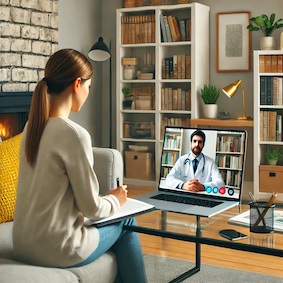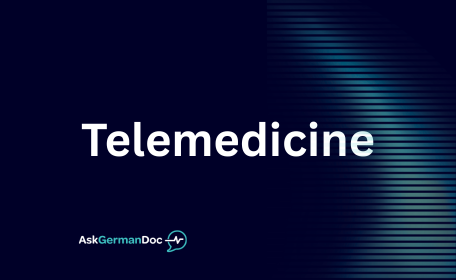International medical consultations are rapidly becoming the standard for patients seeking expert healthcare abroad. Whether traveling to Germany, Switzerland, or other leading medical destinations, patients worldwide benefit from advanced diagnostics, innovative treatments, and highly qualified specialists. However, language differences often create significant barriers—making professional medical interpreters essential to ensuring safe, accurate, and trusted communication between doctor and patient.
Why Language Support Matters in German Medical Consultations
Consulting a doctor in a foreign country is already a challenge—add a language barrier, and it becomes even more stressful. In Germany, doctors are known for their precision, thoroughness, and emphasis on detail. When there is a communication gap, even minor misunderstandings can affect the accuracy of diagnosis and the success of treatment. That’s why professional interpretation is essential.
Medical interpreting is not just about translating words—it requires a deep understanding of medical terminology, cultural nuance, and confidentiality. A qualified interpreter ensures that the patient can accurately describe their symptoms and medical history while also helping the doctor deliver clear explanations, diagnoses, and instructions.
Key Elements of Successful Interpretation
-
Language Proficiency: The interpreter must be fluent in the patient’s native language, German, and ideally English, while being well-versed in medical terminology.
-
Cultural Competence: In German medical culture, clarity and detail matter. Interpreters help patients present their concerns clearly and help physicians understand their cultural context.
-
Confidentiality and Ethics: A professional interpreter respects medical privacy and adheres to strict ethical standards.
The Role of a Medical Interpreter
In cross-border care, interpreters are more than just language facilitators—they are communication specialists who make sure that every medical message is received and understood without distortion.
What Medical Interpreters Do
Medical interpreters provide support throughout the entire healthcare journey:
-
Accurate Translation of Medical Terms: Whether it’s diagnoses, test results, or treatment protocols, interpreters ensure precise, clear communication.
-
On-site and Virtual Support: They accompany patients during physical visits to the clinic or join via video in online consultations.
-
Emotional Comfort: By creating a calm, supportive atmosphere, interpreters help reduce anxiety caused by unfamiliar settings and terminology.
In today’s multilingual medical environment, interpreters must be adaptable across various specialties such as cardiology, oncology, and neurology. Each field has its own language and communication style—meaning experience in the specific medical domain is a decisive factor in the interpreter’s effectiveness.
Why Experience in Medical Interpreting Matters
-
They are familiar with complex terminology, reducing the risk of translation errors.
-
They understand the patient–doctor dynamic and facilitate two-way dialogue.
-
They’re skilled in translating both spoken communication and medical documentation.
-
They support discussions about treatment plans, costs, and consent processes.
Ensuring Patient Comfort and Clarity
Patients often feel nervous when attending appointments in a foreign country. Uncertainty about the language can increase stress and limit their ability to communicate symptoms or ask questions.
How Interpreters Enhance the Patient Experience
-
Build Trust: When language is no longer a barrier, both patient and doctor can focus fully on treatment decisions.
-
Reduce Stress: A familiar voice helps patients feel at ease in unfamiliar surroundings.
-
Ensure Understanding: Patients can feel confident that they fully comprehend medical advice, instructions, and follow-up steps.
Translation of Medical Records
Before any international consultation, it is vital to translate all medical records professionally. Mistakes in medical documents can lead to misdiagnosis, delays, or inappropriate treatment.
Documents That Require Translation:
-
Medical history and previous treatment records
-
Lab test results and imaging reports (MRI, CT, X-ray)
-
Physician notes and discharge summaries
-
Previous recommendations and treatment protocols
Why Professional Translation Is Critical:
-
Accuracy: Ensures doctors have a complete and correct picture of the patient’s health.
-
Efficiency: Speeds up diagnosis and treatment planning.
-
Treatment Success: Enables doctors to offer the most suitable therapies based on reliable information.
Interpreters Provided by Ask German Doc
Modern telemedicine platforms like AskGermanDoc make it easy for patients to access certified medical interpreters without leaving home. Our interpreters work seamlessly with doctors via video consultations, helping ensure clarity, accuracy, and comfort during every interaction.
Why Choose Ask German Doc’s Interpreters?
-
Specialized Experience: Our interpreters have years of experience working in medical settings and understand the specific challenges of consultations in Germany.
-
Full-Service Support: We accompany patients through every step—from the first consultation to post-treatment care.
-
Tailored Matching: We assign interpreters based on your language, medical condition, and personal preferences.
Conclusion
Professional medical interpreters play a vital role in making international consultations effective and stress-free. By eliminating language barriers, they ensure that patients feel confident, heard, and accurately diagnosed. With AskGermanDoc, patients receive high-quality interpretation services that allow them to focus on what truly matters: their health. Whether you're seeking a second opinion, complex treatment, or rehabilitation in Germany, we help make the experience smooth, safe, and fully understandable—every step of the way.
Disclaimer: This article is intended for informational purposes only and does not constitute medical or legal advice. All consultations and translations offered via AskGermanDoc are provided by certified professionals in compliance with applicable healthcare communication regulations. Patients should always consult directly with licensed physicians before making treatment decisions.
Sources:
-
Bundesärztekammer – https://www.bundesaerztekammer.de
-
National Council on Interpreting in Health Care – https://www.ncihc.org
-
WHO Guidelines on Effective Communication in Healthcare – https://www.who.int




